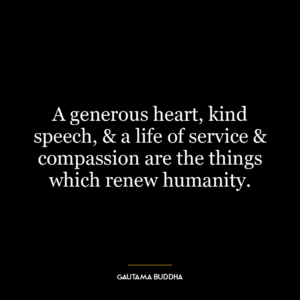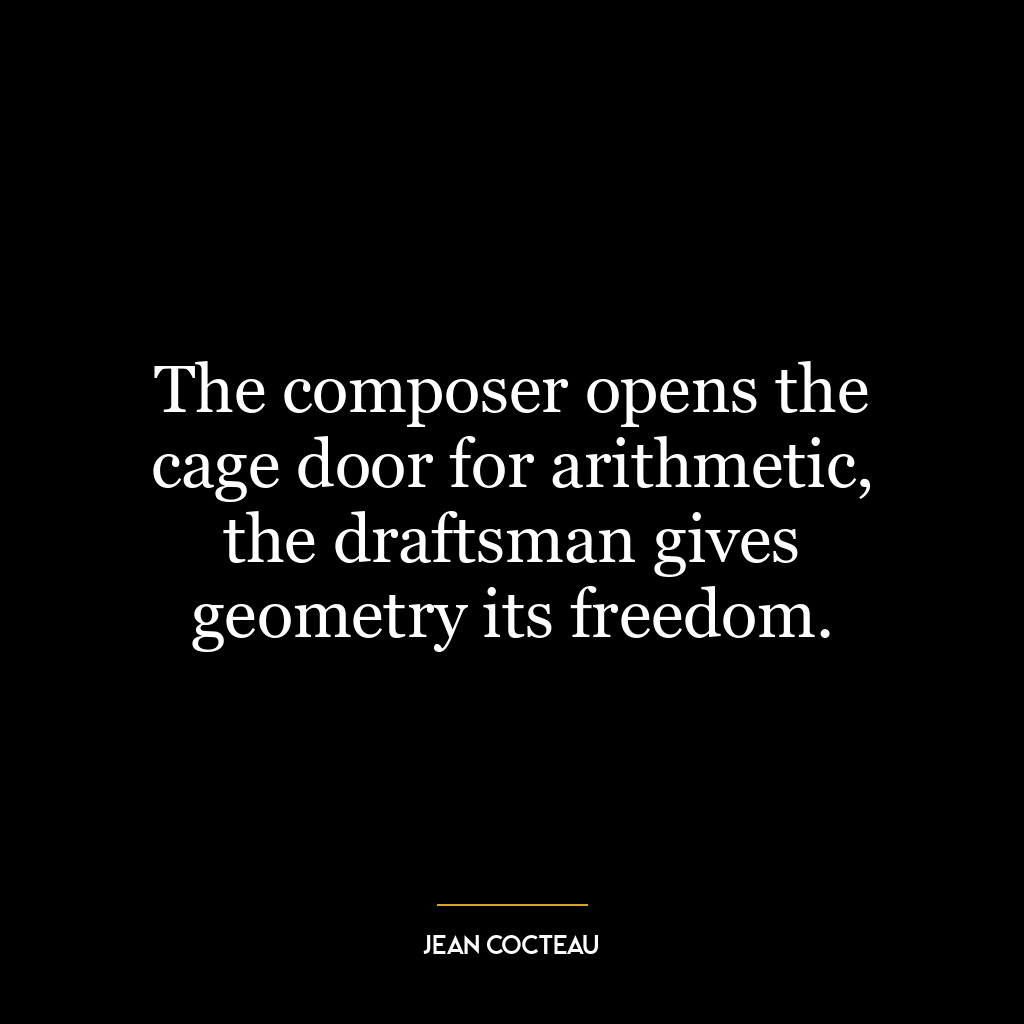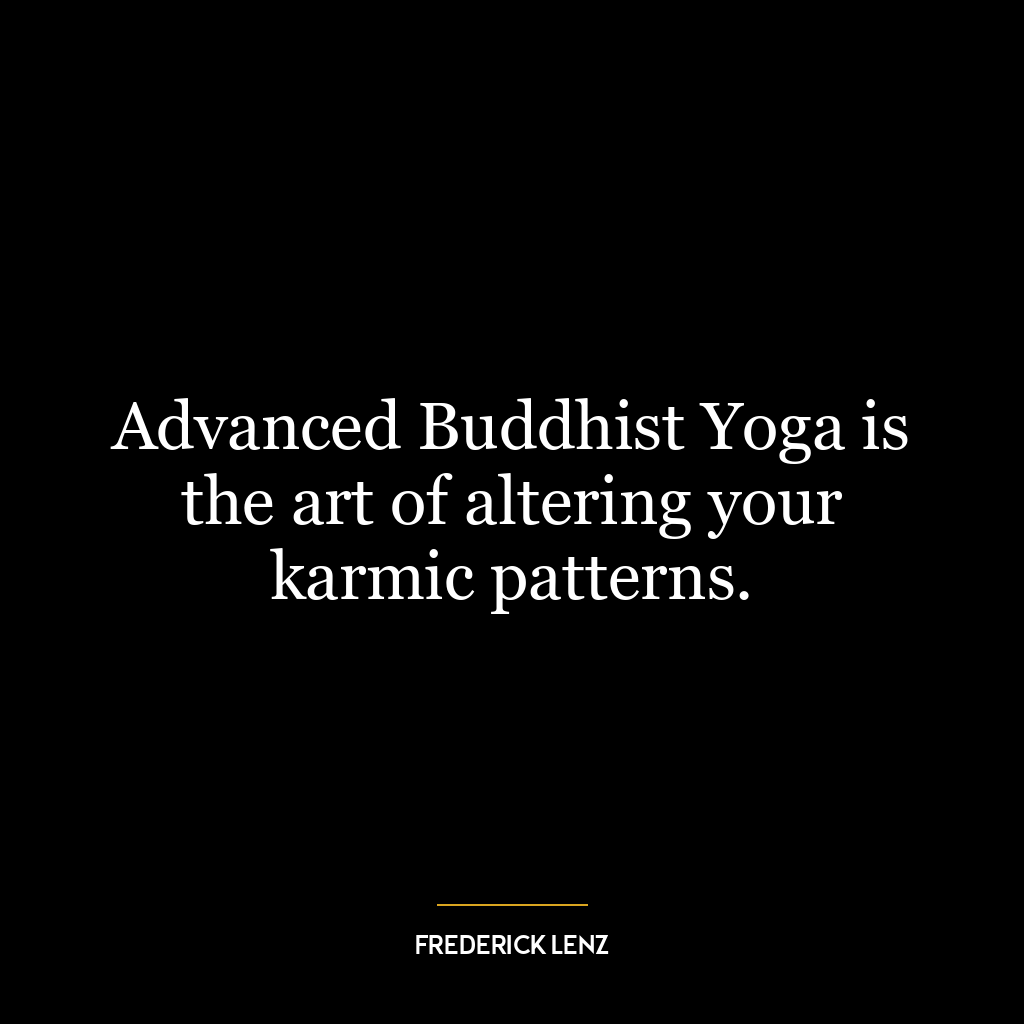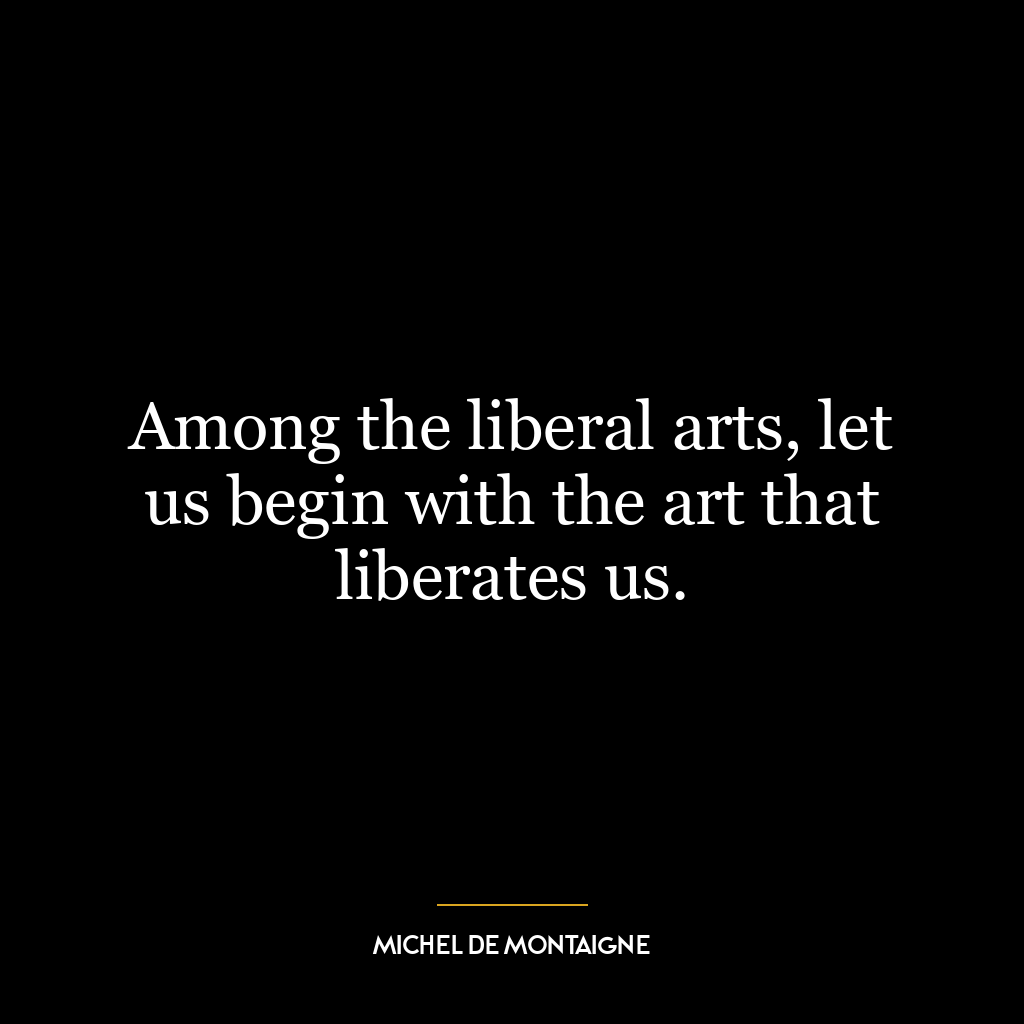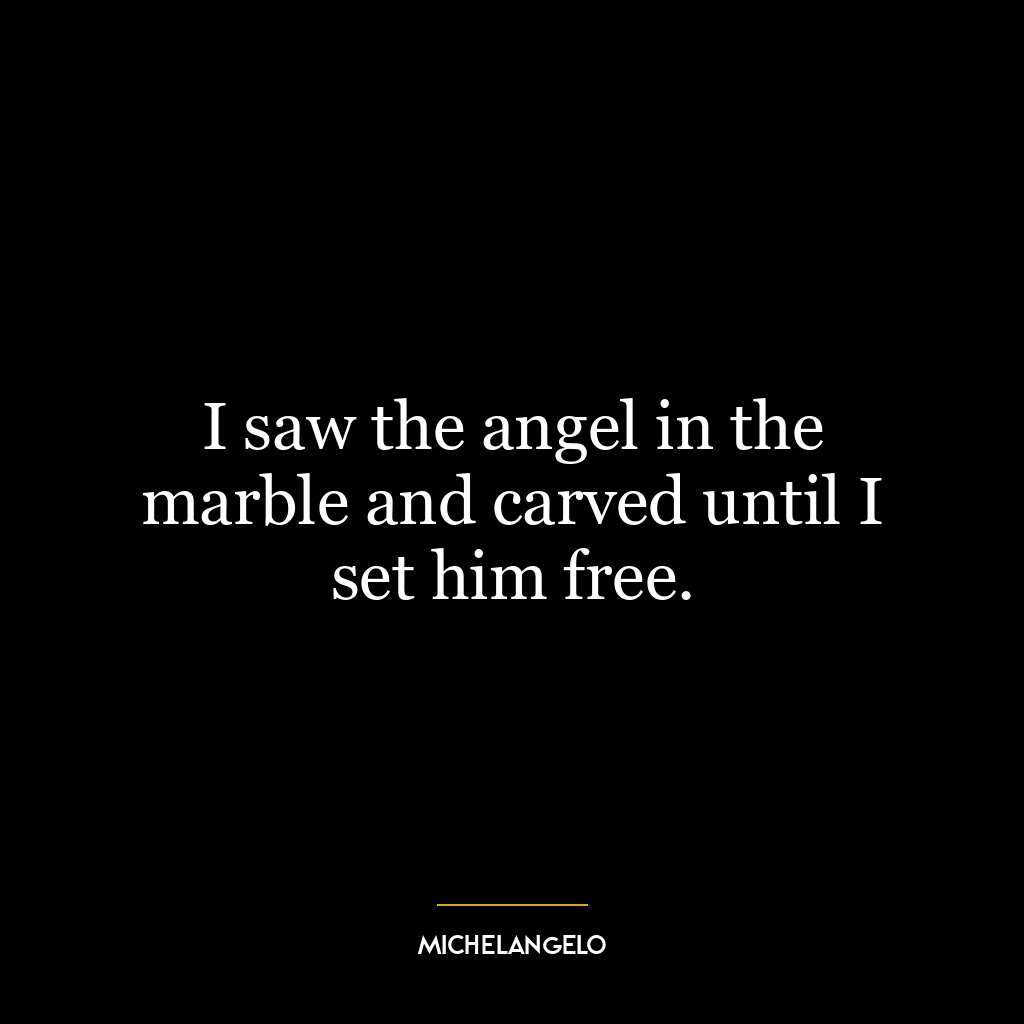As long as one feels that he is the doer, he cannot escape from the wheel of births.
This quote emphasizes the concept of ego and its role in perpetuating the cycle of rebirth, a central idea in Buddhism. When one thinks they are the “doer,” it implies that they believe their actions and experiences are driven by their individual self or ego. In this context, the “wheel of births” refers to Samsara, the cycle of birth, death, and rebirth that Buddhists believe all beings are trapped in until they achieve enlightenment.
The belief that we are independent entities separate from everything else fuels our desires, attachments, and aversions which ultimately lead to suffering. This suffering then keeps us tied to Samsara. The Buddha taught that by letting go of this sense of being a doer or an individual self (ego), one can break free from this cycle.
In today’s world or personal development context, this idea could be applied by promoting mindfulness and detachment from ego-driven desires. It encourages us not just to act but also reflect on why we act – is it out of selfish desire or for collective good?
For example: when seeking success in work or personal life, instead of focusing solely on individual achievements (which feeds into our sense ‘I am doing’, ‘I am achieving’), one might find more fulfillment through collaborative efforts where achievements become shared experiences rather than a boost for personal ego.
Additionally, understanding ourselves as part of an interconnected world can help foster empathy towards others as we realise their suffering is not separate from ours. This perspective shift may lead to more compassionate actions which promote collective wellbeing over individual gain.
However challenging it might be to fully let go off our perception as being the ‘doer’, even small steps towards reducing attachment with outcomes can bring about significant positive changes in our lives such as reduced stress levels and improved relationships with others.









